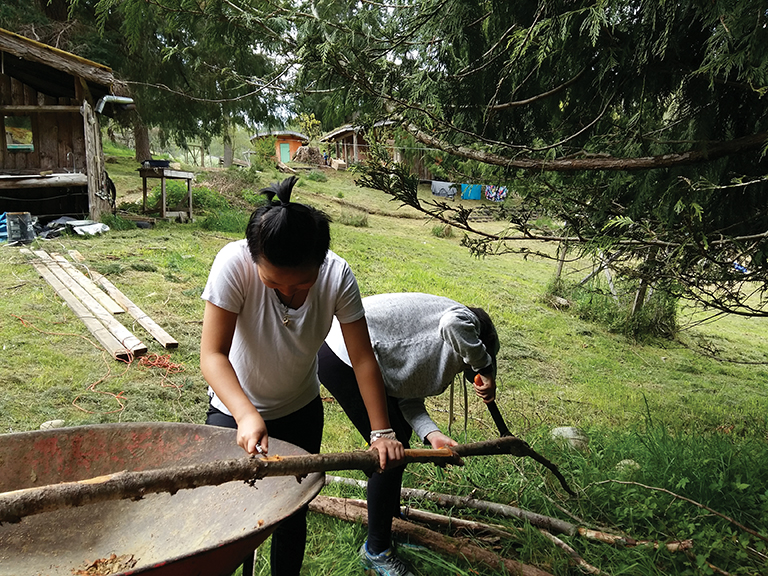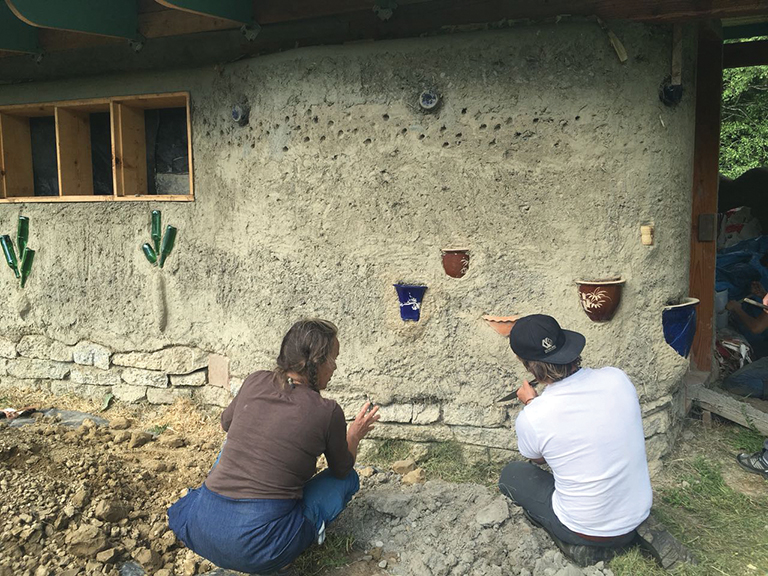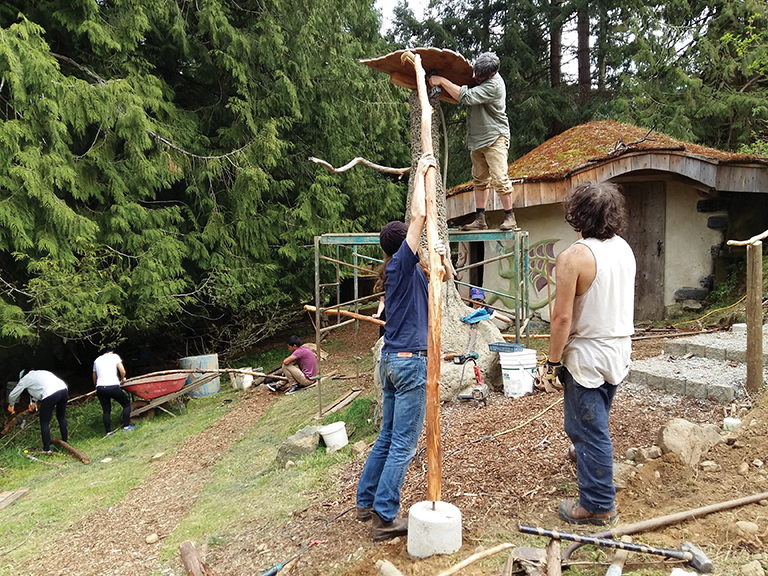By Blake Wilson

In community, communication is key. Often what we are trying to express is not fully understood, and that can lead to destructive circumstances. I will share with you a story…
It was a farm-friendly, warm, dusty morning, with the sun shining bright into the azure sky, just above the trees in the swamp down east, and with the roosters sharing a morning call to all those who laboured on the farm. The goats were with oats, the sheep were out in the pasture, the chickens were scouring for scraps, and the cows were free to munch on grass. The day was moving with great resolution. I jumped into my tractor to make quick work of a pile of manure that had been shoveled near the paddock gate when I remembered that I had to take my pickup to my friend’s farm a couple of kilometres away with some petrol that I had promised him for his backhoe.

Simon, from Germany, was crossing the gravel lot in front of the barn, and I shouted to him, “Can you put the gas in the truck, please?”
“Where is it?” he yelled back.
“Around back of the tool shed,” I informed him.
“No problem, I’ll get it done right away,” and he ran off.
Satisfied that I had made myself clear, I went into the farmhouse to gather my tools for the trip.
After gathering my needs, I went back out to where my 4×4 diesel truck was parked, and looked for the gas can I had asked Simon to locate. It wasn’t there. I went behind the tool shed to grab it myself and found it wasn’t there either. Mystified, I searched for Simon. Out in the garden I could see him and I yelled, ”Did you put the gas in the truck?”
He, with his head confused, turned around and hollered back, “Yes, like you said, I put the gas in the truck.”
“I don’t see it. Did you put the gas in the truck?”
“Yes, I put it in the truck.”
“Where did you put it, in the truck?”
“In the truck, like you asked.”
“Could you be more specific?”
“I put it in the gas tank.”
I was staggered. This diesel truck was my livelihood, and meant the world to me. I immediately ran over and drained the fuel tank, thankful that I was able to revive the vehicle. And this is when I learned that my method of communication is not always understood, and in a community one has to speak precisely and clearly.
In a community, communication is of utmost importance.
Blake Wilson recently moved from the vast territory of Nunavut, where he co-managed the local food centre that helped people build a relationship with food, and worked in the nonprofit field of food security. A graduate of UBC’s Creative Writing program, he is very excited to be on Canada’s largest western island, where he has quickly taken to a life of community and working a farm at OUR Ecovillage. He hopes one day to use his experience to aid others be food sustainable, while also writing the great Canadian novel. Contact him at sl2connect [AT] ourecovillage.org.
Excerpted from the Fall 2019 edition of Communities (#184), “The Shadow Side of Cooperation.”

